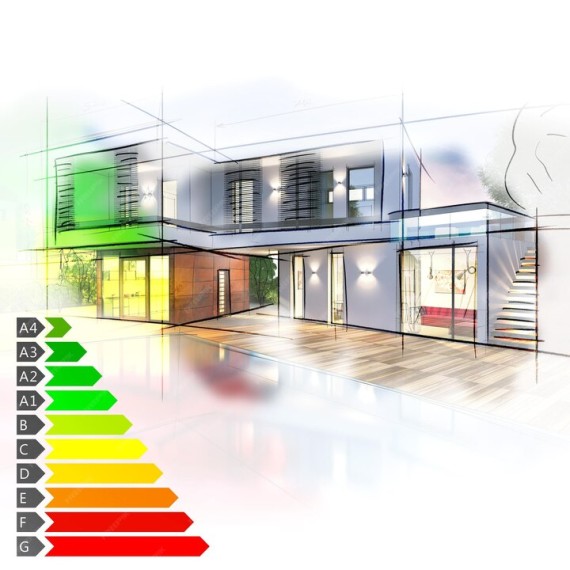
How A Lower EPC Rating Can Impact Your Home Environment

EPC is like a report card for your house, telling you how energy-efficient it is. Ratings range from A to G and show different levels of energy efficiency for homes. These ratings play a key role in obtaining the UK government’s eco4 grants. Click here to learn more about these grants and how you can increase your chances for availing them. The link contains lots of useful information to maximize your chances for the grant.
If your home has a low EPC rating, it means it could be more energy efficient. This can have a big impact on your home environment. Firstly, a low EPC rating means your home is likely losing heat. Secondly, a low EPC rating can also affect the environment. So if your home has poor EPC, it will contribute to greenhouse gas emissions. As a result, this will worsen climate change. Moreover, if you ever want to sell your home, a low EPC rating could put off potential buyers. People want homes that are energy efficient because they're cheaper to run and better for the environment.
How is EPC calculated in the UK?
To give your home an EPC rating, a special inspector called an accredited Domestic Energy Assessor (DEA) will visit your property. They won't need to make any major changes – it's a non-intrusive inspection.
The DEA will use a clever system called the Standard Assessment Procedure (SAP) to calculate your EPC rating. SAP considers many things that affect your home's energy use, like: How big is your house? What materials are the walls, roof, and floors made of? How well-insulated is your home? Are there any drafts around windows or doors? What type of heating system do you have? Is it old and inefficient, or is it a newer, more eco-friendly model? What kind of light bulbs do you use?
By taking all these factors into account, SAP gives your home a score. This score is then translated into the familiar A to G EPC rating.
How EPC contributes to the home environment
A higher EPC rating (A-C) translates to a more energy-efficient home. This has several positive impacts on your home environment:
- Improved Comfort: A well-insulated and energy-efficient home retains heat better in winter and stays cooler in summer. This leads to a more comfortable living environment with fewer drafts and a more consistent temperature.
- Better Air Quality: Less reliance on ventilation systems to maintain comfortable temperatures can lead to improved indoor air quality, especially if you combine energy efficiency measures with proper ventilation practices.
- Reduced Noise Pollution: Modern energy-efficient appliances and windows tend to be quieter than older models. This can create a more peaceful and relaxing home environment.
Carbon emissions and EPC ratings
A lower EPC rating (D-G) indicates a less energy-efficient home. This can have negative consequences for the environment:
- Increased carbon emissions: Homes with lower EPC ratings typically use more energy, often from fossil fuels. Burning fossil fuels releases greenhouse gases. Moreover, it includes carbon dioxide, a major contributor to climate change.
- Greater reliance on the grid: Less efficient homes put more strain on the national electricity grid. Furthermore, during peak demand periods, problems can occur. Consequently, this can lead to increased reliance on power plants that might use fossil fuels. So it will, further contribute to emissions.
How to make your home more energy-friendly?
There are ways to improve your home's EPC rating, even with small changes! Here are a few ideas:
- Seal the Leaks: Check around windows, doors, and any gaps where pipes or wires enter your home. Filling these gaps with caulk or sealant can help keep warm air inside.
- Insulate Your Walls and Roof: Next, good insulation maintains temperature throughout the year.
- Upgrade Your Heating System: An old, inefficient boiler uses more energy to heat your home. Consider a newer, more energy-efficient model.
- Switch to LED Light Bulbs: LED bulbs use much less energy than traditional bulbs and last way longer. Consequently, you can save money in the long run.
- Quick Wins: Simple things like turning off lights when you leave a room, taking shorter showers, and air-drying clothes instead of using a tumble dryer can all add up!
Bottom line
By improving your home's EPC rating, you're not just saving money on energy bills and making your home more comfortable. You're also doing your part for the environment and increasing the value of your property. It's a win-win situation! Remember, small changes can make a big difference. So start your journey today to increase your EPC score.
